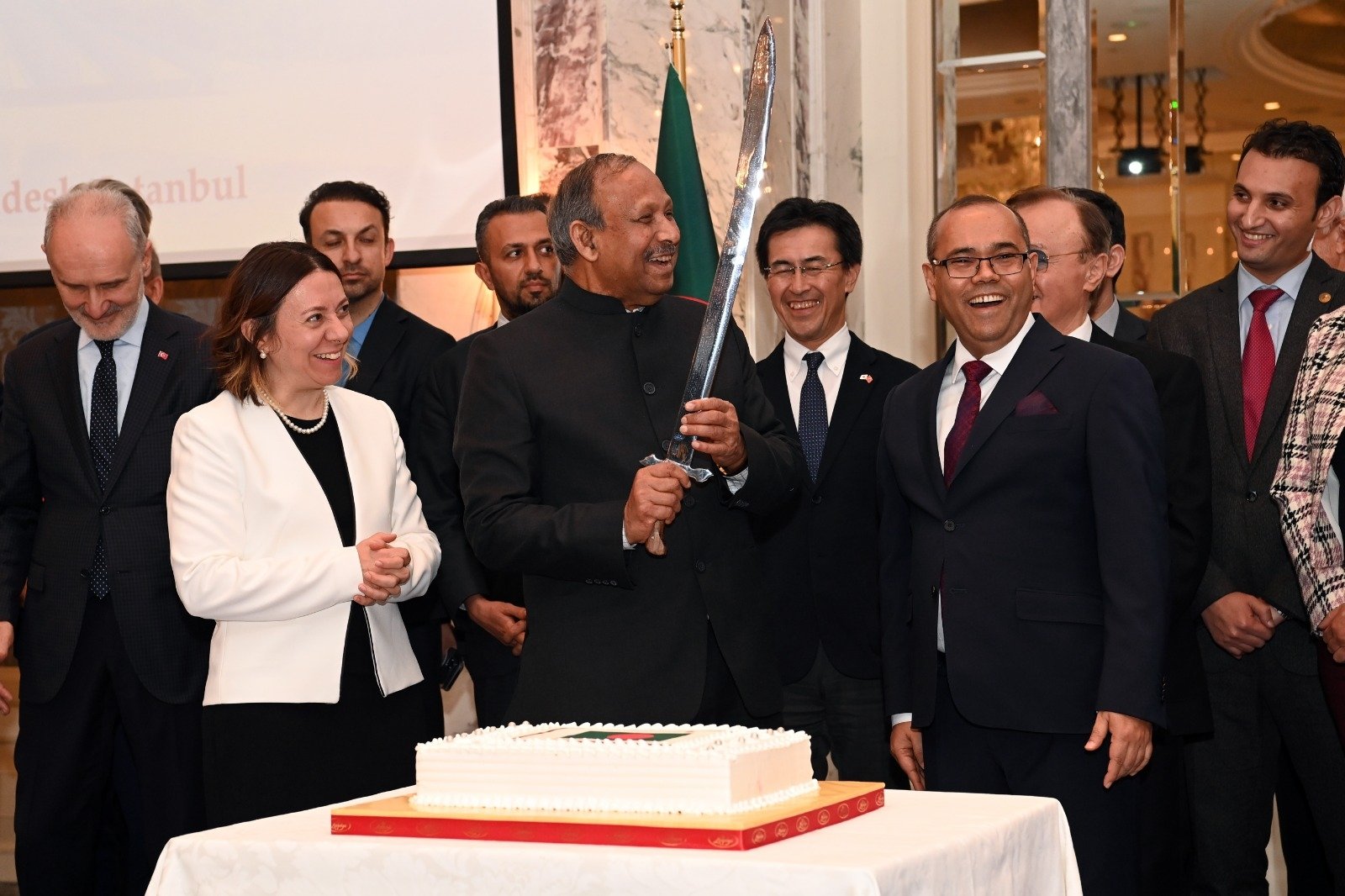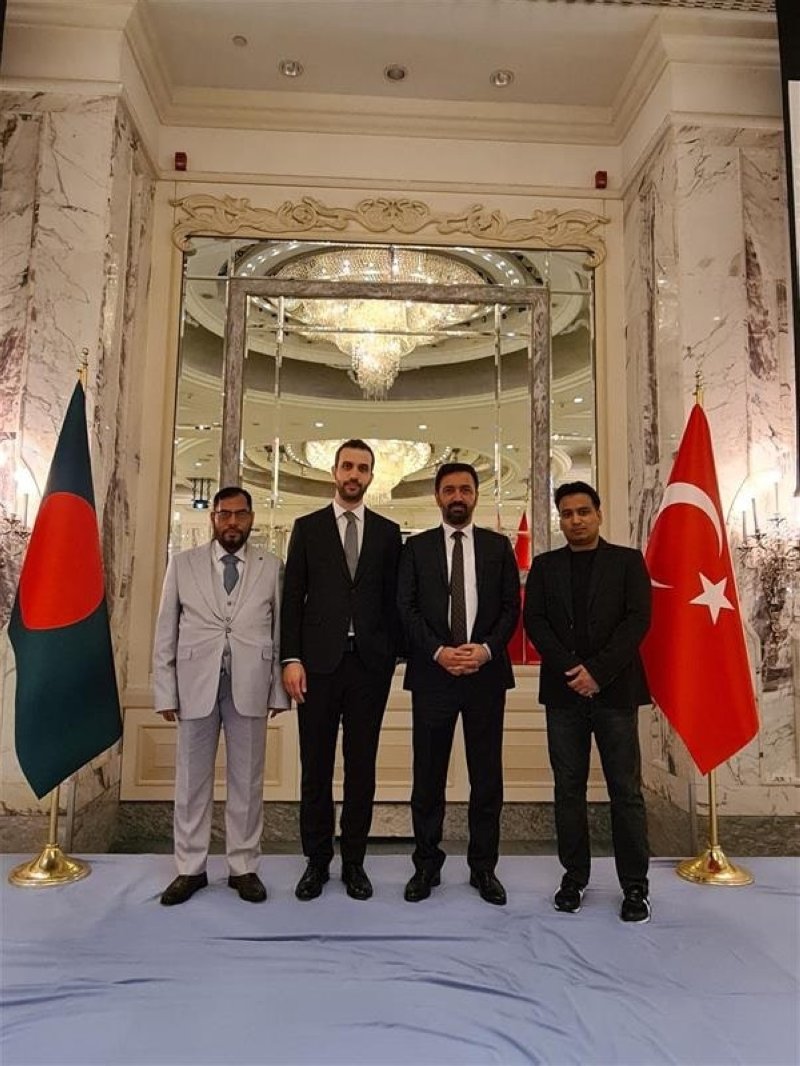© Turkuvaz Haberleşme ve Yayıncılık 2024
Bangladesh’s Consulate General in Istanbul recently hosted a reception at Hotel Shangri-La Bosphorus to celebrate the country’s National Day.
A top official from the Turkish Ministry of Foreign Affairs and many other dignified and high-level government officials, businesspeople, academicians, writers, journalists and cultural personalities, besides consular corps members, attended the function.
While Yeafesh Osman, Bangladesh's minister of science and technology, graced the occasion as the Chief Guest, Turkiye’s Ambassador Ayşe Sözen Usluer, the head of the Istanbul Representation Office at the Ministry of Foreign Affairs, was the guest of honor.
Usluer congratulated the government of Bangladesh and its people on occasion and reiterated the “continued support and cooperation of the Turkish people and government for the dignified and permanent return of Rohingyas to their homeland Myanmar.”

She expressed gratitude to Dhaka for the earthquake assistance. She hoped that the “brotherly relations between Turkiye and Bangladesh would continue to grow stronger, expanded and more meaningful in the coming days.”
Osman said that friendly and diplomatic ties between the two countries' peoples are deep-rooted and date back several centuries.
He expressed his gratitude to “the government and the people of Turkiye for their support and solidarity in the Rohingya crisis.”
Bangladesh Consul General Mohammed Nore-Alam's welcome remarks highlighted Bangladesh's phenomenal success in every sector of its socio-economic landscape.
Bangladesh’s National Day, also known as Independence Day and officially marked on March 26, marks the anniversary of the country’s declaration of independence from Pakistan in 1971. The cultural importance of Bangladesh’s National Day cannot be overstated. It commemorates a significant event in the country’s history that led to the birth of a new nation and the end of a struggle for freedom.
The struggle for independence in Bangladesh was a long and bloody one that began in 1947 when India was partitioned into India and Pakistan. East Pakistan (present-day Bangladesh) and West Pakistan were separated by more than a thousand miles, and the two regions were culturally and linguistically distinct. East Pakistan was dominated by West Pakistan economically, politically and socially. The people of East Pakistan faced discrimination, and their voices were not heard.

In 1971, after years of struggle, the people of East Pakistan declared independence from Pakistan. A nine-month-long war ensued, leading to Bangladesh’s liberation on Dec. 16, 1971. This day is celebrated as Victory Day in Bangladesh. The independence struggle and the subsequent victory are significant events in the country’s history and profoundly impact the country’s culture.
The cultural significance of Bangladesh’s National Day is reflected in the various celebrations and events that take place throughout the country. People hoist the national flag and sing the national anthem. Special prayers are offered in mosques, temples and churches. Parades are held, and people wear traditional clothes. Cultural programs, including music, dance and drama performances, celebrate the country’s culture and heritage.
